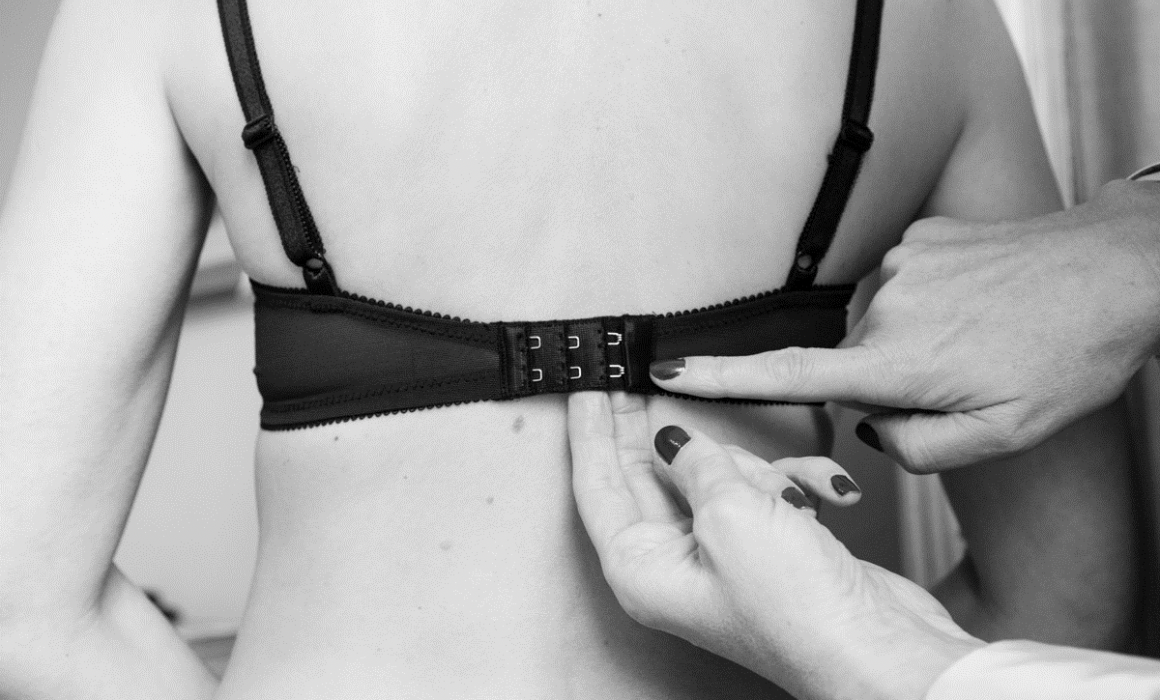
Of all the times in your life when you feel the need for a holiday, coping with breast cancer is close to the top of the list. But gone are the carefree days of packing the suitcases and heading off into holiday-land. Now we have to think about medications, insurance premiums and factor 50 sunscreen. But fear not, with the help of Fiona Macrae (founder of InsuranceWith) and top tips gathered from people who have experience of travelling while going through cancer treatment, we’ve written this article from our own experience to provide you with lots of helpful tips and advice.
It’s a long article because it has a lot of practical advice so you might want to print out or bookmark this page so you can refer back to it.
Planning tips for holidaying with breast cancer:
1. Medical advice. Always talk to your oncologist if you are planning a holiday during or shortly after your treatment. He/she will be able to advise whether and when you can go. Don’t rule out a holiday mid-treatment: your oncologist may agree to it.
2. Where to go? If your holiday was not booked before your diagnosis and you are now thinking of booking a holiday for during or after treatment, consider your limitations. It is worth considering things such as:
- The length of the flight
- Can you cope with airports and transfers?
- The quality of healthcare in the country you wish to visit
- The length of the journey
- The advice about any vaccinations needed to visit a particular country (the current medical advice is not to have live vaccinations for 6 months after chemo)
- Cost of travel insurance
- Your energy levels and what activities you will be doing
3. Flying. If you are flying then you need to think about:
- Risk of lymphoedema from flying – the Cancer Research UK website says “Research suggests that flying does not increase the risk of lymphoedema developing.” But it suggests “When on a flight, move around as much as you can. Circle your ankles and move your legs and arms while you are sitting. It will all help lymph fluid to circulate. Deep breathing can also help.” Talk to your medical team if you are planning on flying somewhere.
- If you have developed lymphoedema before you travel then you will need to speak to your specialist about flying – you may need to wear your compression garment.
- Talk to your oncologist about whether your chemotherapy treatment increases any chance of a blood clot (DVT) from flying and if so what precautions you need to take. For example, f you are on tamoxifen it can slightly increase the chance of a blot clot so do all the anti-DVT exercises on your flight like clenching and unclenching your fists, moving your legs and walking up and down the aisle. More advice is on the NHS website and again talk to your medical team about this.
- Your prosthesis – take a look at the Breast Cancer Now website for advice on flying with a prosthesis.
5. Local medical facilities. Find out where local healthcare facilities are close to where you will be staying, so should you be taken ill you can get to where you need to go quickly.
6. Vaccinations. If you are travelling to somewhere for where you need vaccinations, check with your oncologist about whether it is ok to have these during or after chemo: some vaccinations carry a tiny amount of the virus and these are not recommended within six months of chemo while your immunity is still poor.
8. For those who have lymphoedema or are at an increased risk of lymphoedema because you’ve had lymph nodes removed, you should think about:
- If you are travelling to somewhere for where you need vaccinations do not have injections in your at-risk arm.
- Take insect repellent to avoid the risk of insect bites (which can become infected and then lead to lymphoedema).
- Take a water spray to keep your arm cool.
- Carry a travel size first aid kit with antiseptic wipes, antiseptic cream, plasters and antihistamines to help deal with any minor injuries and prevent an infection.
- Wear a medical ID bracelet to make it clear no BP, IV, needles in your at-risk arm.
- Ask your GP to prescribe some antibiotics for you to take in case you hurt your arm and it gets infected. In some areas, GPs are no longer allowed to prescribe antibiotics for “just in case” situations, but it is worth checking with your GP.
- Wear a high factor sun screen to avoid sun burn – which can lead to lymphoedema.

9. Chemo sensitive skin. If you have recently finished chemo, or still going through it, your skin will be more sensitive to the sun. As a result, you will need to take more than usual precautions in the sun:
- Wear a high factor sun screen which protects against UVA and UVB rays.
- Consider sensitive skin brands, paraben free or organic products which are gentler on your skin.
- Cover up, stay in the shade and avoid the midday sun. You are susceptible to burning more easily.
- Don’t forget to cover your head if you have thinned or no hair.
10. Post radiotherapy sensitivity. If you have just completed radiotherapy then there are other precautions to take in the sun. The area where you have been zapped will need to be covered from the sun. Use a high factor (50) sun screen even under clothes because some fabrics do not block the sun.
11. Swimming in the pool or sea? Check with your chemo nurses, radiotherapy nurses or oncologist for their advice about swimming on holiday if you have just completed, or are still going through, treatment. The chlorine and salt can irritate your sensitive skin.
12. Post rads skin cream. If you have recently completed your rads then make sure you pack your skin cream that you have been using for the zapped area, plus any medications you have been prescribed.
13. Medication. Remember to take all your medicines and pack them in your hand luggage. You must check that all the medications you will be travelling with can legally be brought into the country you are travelling to. Some countries have very strict rules on the medications they allow to be brought in, so it always best to check with the embassy of the country you are traveling to, particularly if you are travelling with any controlled drugs. More information and advice on this subject is available on the NHS website.
14. Fit to fly/fit to travel letter. It is always advisable to check your travel plans with your treating doctor, and they should note on your records that they are happy with your travel plans. At least 4 weeks before your travel date speak to your treating doctor/team and ask them for a ‘fit to fly’ letter. These letters can take a little bit of time to arrange so don’t leave it until the last minute. You will need one of these letters if you require airport assistance (see the next point) and other assistance during your holiday. If you don’t have one and have requested assistance, you may be refused boarding.

15. Assistance while travelling. When planning your holiday, if you are flying, it is worth thinking about any assistance you may need at the airport, for example to carry luggage, travel around the airport, and priority boarding. Then you need to discuss this with the airline or tour operator when booking your holiday. Most airlines are happy to offer this service; however, it can be in high demand so make sure arrangements are in place early, check with your individual airline how soon before travel you should arrange the assistance, as time frames can differ from airline to airline. One note of caution, if you do request assistance, most airlines will ask you for a fit to fly letter (see above) from your treating doctors.
16. Disability access abroad. Although you may not consider yourself disabled after a breast cancer diagnosis, the Equality Act does consider a diagnosis of cancer as a disability. For example, some side effects of your treatment or surgery may mean that you are less mobile that before your diagnosis.
If this is your first time abroad after your cancer diagnosis, it is advisable to research the area you are travelling to and the facilities that will be available to you. If you have any special health requirements check these can be catered for before you chose and book your holiday destination. When planning your holiday and definitely before you go, we would encourage you to read through the ‘disability and travelling abroad’ information on the Foreign Commonwealth and Development Office (FCDO) website. If you are registered disabled, you may also get access to a fast-track queuing service at some of the more popular theme parks. It is always worth checking on the accessibility pages of their web site to see what is available to you.
What to pack for a holiday when you have breast cancer:
- Sunscreen – high factor, sensitive skin sunscreens are suitable for anyone on treatment or shortly after treatment due to your skin being more sensitive.
- Body moisturiser – such as Aloe Vera gel, E45 cream or one of the other good moisturisers for any sensitive areas where you’ve had radiotherapy.
- Travel insurance (see below for lots more advice on insurance as this is so important).
- Mini travel first aid kit (wound wipes, antiseptic cream, plasters, antihistamines and a thermometer).
- Hand cream and lip balm – because you can experience dry skin and lips as a result of treatment.
- Medications – take extra supplies of your routine medications and take a course of spare antibiotics and strong painkillers (see note above above taking medications abroad).
- Insect repellent and bite cream – this is particularly important so as to help minimise the chances of an infected insect bite if your immunity is lower than usual.
- Antiseptic cream or oil such as tea tree or witch hazel, for any cuts, scratches or bites. Put this on straight away to help with inflammation and an possible infection.
- Compression garments (if you use them).
- Compression socks for the flight if your medical team advise you to use them.
- A small electric handheld fan or paper fan can be helpful if you are dealing with hot flushes.
- Hat, scarves and maybe something to cover sensitive skin areas if you are going somewhere hot.
- A love for life and a “have-fun-on-my-holiday” attitude.
How to arrange travel insurance when you have cancer
It’s very important to ensure that you have adequate travel insurance for your holiday abroad. Fiona Macrae, founder of InsuranceWith and who is living with secondary breast cancer herself, has these tips for you.
1. Do not exclude cancer cover from your travel insurance policy. Many people think, I am not going to need cancer treatment, or my cancer is not suddenly going to get worse while I’m abroad so why do I need to cover cancer? What they do not realise when they exclude cancer cover from the policy is, they are not just excluding cancer, but also anything that can be attributed to the cancer or the treatment of it. It is worth remembering, you are more likely to get issues with the side effects of your treatment than you are from your actual cancer while travelling. For example, if your take Tamoxifen you are more prone to DVT, so you would be excluding cover for that. Or if you are on immunotherapy and pick up an infection, this could be attributed to your treatment, so also would not be covered, if you excluded cover for cancer on your policy.
2. If you have a travel insurance policy through your bank account, you will need to check that they will cover your medical condition Some will and some won’t. It is best to give them a call and let them know about your medical condition. They may offer cover with no extra charge, or they may say they can cover it at an additional premium. If they do provide cover, make sure you get confirmation in writing. If they say they will continue covering you but will exclude all claims to do with your medical condition, see point 1 above and consider getting alternative cover, or top up cover that will cover your medical condition.
3. Ensure you have travel insurance cover for any activities you are planning to take part in. Many activities that you would consider normal to do whilst on holiday may not be covered under your travel insurance policy so cross check the activities you will be taking part in against the cover offered by your travel insurance provider. Furthermore, if you are going on a holiday where you will be doing winter sports such as skiing or tobogganing, then you should look for a policy that offers winter sports cover, but again double check the activities that you will be doing against the cover provided.
4. You should always take out travel insurance, where possible, as soon as you have booked your holiday so you have cover should you need to cancel the holiday. If you are recently diagnosed or your diagnosis is more complex, we would always advise checking that you can get travel insurance cover to the destination you are thinking of travelling to before you book your holiday, particularly if you have just finished treatment, or if you have just changed treatments. The timing of the holiday around treatment or changes in treatment could also be relevant to whether cover would be available or not. Speak to the travel insurance provider and ask if moving holiday dates or destinations would help you to get cover.
5. If you are travelling in Europe, you should always take your EHIC/GHIC Card with you. Following BREXIT, the EHIC (European Health Insurance Card) has been replaced by the GHIC (Global Health Insurance Card). Although EHICs are no longer available, if you already have one, your current card will remain valid until it expires and you can apply for a GHIC renewal six months before your EHICs expiry date. However, it must be noted that the EHIC/GHIC are not substitutes for travel insurance. Both cards will provide you with health care to the same level of a national of the European country you are visiting. But this does not mean that it is completely free; you would pay what a local resident would pay, which will differ from country to country. The EHIC/GHIC will also not cover you for repatriation back home if you are taken ill and cannot travel home as planned, which could be quite costly should you need a medical escort or air ambulance. Remember you may not be well enough just to jump on the next available flight home, and if the airline is at all concerned about your state of health, they will request a fit to fly letter from a doctor before they allow you to board the flight.

6. Looking for travel insurance after a breast cancer diagnosis can be tricky. The providers you had used pre cancer my now refuse to cover you, which can leave people feeling a bit lost. But don’t despair cover is available; you just need to know where to look. Money Helper, part of the Money & Pensions service has set up a Travel Insurance Directory to help people with medical conditions find the most suitable travel insurance policy for them at an appropriate price.
7. On the Travel Insurance Directory you will find a list of specialist companies to try. To save you running through quotes with all the providers listed in the directory, it is advisable to select quotes from providers on the list who use different medical screening companies. To assist you with this, Money Helper give the name of the medical screening company used by each firm on their list.
8. You could also check out one of the comparison sites for a quote and compare that against the quotes you get from the Money Helper providers. You don’t need to try all the comparison sites as they all use the same medical screening system so the outcomes across them all will be relatively similar.
9. It is advisable to cover the whole family with the same insurance provider. Many people who have been diagnosed with breast cancer will take out a specialist medical travel insurance policy just for them and have their family on a general travel insurance policy. However, this is not advisable. Should you need to cancel the holiday due to your breast cancer or the treatment of it, you could make a claim for your portion of the holiday costs on your policy, but the rest of your family will not have declared your breast cancer to their travel insurance provider, so they would be unable to claim against their policy for the cancelled holiday.
10. Consider looking for quotes for both single trip and annual travel insurance policies. Before being diagnosed with breast cancer you probably always had an annual or multi trip travel insurance policy. However, post diagnosis, particularly if you have just finished treatment or have a recent secondary breast cancer diagnosis, you may only be offered a single trip policy initially.
11. If you are struggling to find travel insurance cover or trying to reduce the cost of your travel insurance cover, be flexible with your travel dates and destinations. For example, trying to get cover straight after finishing active treatment may be difficult or could be more expensive than if you wait for 8 to 12 weeks from when your treatment finishes. Destination will also have a bearing on the cost or availability of cover, for example Mexico and America are the more expensive for travel insurance.
Holidaying with breast cancer – tips from your Future Dreams community:
- “Be prepared for an emotional ride – it pops up when you least expect it, but let it come. Carry tissues and if swimming, get a suit you really like that fits well. Make sure you carve out time to rest, and a good backpack helped after the mastectomy.”
- “Due to the side effects of one of my drugs, I contacted the airline and was provided special assistance at the airport. This meant I could check in quicker and went through fast track security, taking away the anxiety of possibly having to rush out of a queue to the toilets.”
- “Get the best insurance you can afford. My main concern was repatriation (just in case), but thankfully I’ve never needed it. I don’t take long haul flights anymore, as the travel takes it out of me. The first few holidays, I actually felt pretty poorly the first few days, but the sunshine and rest did me the world of good. The main thing is to pace yourself; you may not be able to have the sort of holidays you had pre-diagnosis. But most of all, don’t miss out. Go on holiday! You deserve it now more than ever before!”
- “Good travel insurance is essential. I had assistance during travel and notified staff on planes, buses, and trains. They take great care of you, so don’t feel afraid to ask for help and say if you need something. I found walking far most difficult, so besides good comfort in shoes, I also rested lots. Other than that, I found it a positive experience and loved how good it made me feel. So do enjoy!”
- “I went on my first sun holiday in March, 18 months after diagnosis. I’m still on targeted therapy and took every anti-tablet with me, as treatment causes me to have sickness and diarrhea occasionally. I didn’t take anti-histamines, which I did need due to the first-ever breakout of prickly heat from the chemo tablets. Going again in three weeks, I’ll have plenty this time! It’s daunting that first time, but be kind to yourself and take it one day at a time. I slept a lot in the shade too.”
- “Keep all medication in hand luggage. On my first holiday abroad, my suitcase was lost with some of my meds. A hand-held fan is a game-changer on holiday, especially if you are in medical menopause or suffering from hot flashes. Take it easy on yourself, don’t overthink it, and enjoy yourself.”
- “I told my insurance company everything relating to my diagnosis and subsequent issues, and my annual insurance cover was only £140 more expensive than normal. I also went to a specialist shop and purchased a new bikini and swimming costume. It really made a difference to how I felt, as my old bikini was uncomfortable to wear.”

- “Contact details of medics involved with you. Enjoy it and don’t be hard on yourself. The first holiday I had post-treatment was a short, relatively local trip. We were supposed to be away two nights, but although I enjoyed it, my first night was so uncomfortable we didn’t stay the second night but did enjoy the days!”
- “Be prepared not to be able to do some things. Just allow yourself to rest and relax. I did a day of activity, then a day of rest and doing little. And have fun! You may have a new appreciation for the little things in life.”
- “I was not prepared for the heat. Previously, I could stand any temperature anywhere at any humidity. I was with a lot of people (it was a 60th birthday) in a city and did too much. I thought I was the person I was before treatment. I would avoid anything that involves a lot of people. Your first few holidays should be about healing. Don’t let other people’s plans interfere with your recovery.”
- “Take it easy on yourself. Don’t try to do too much.”
- “I would recommend not going too far from home for a long weekend at first to build up confidence about leaving your safe zone. We went away for a week, and I became so anxious my husband said let’s go home. We then had short breaks, and this year we’re just back from a week away. Slowly, step by step with loving support, your new normal will evolve.”
- “Don’t beat yourself up for the range of emotions you’ll feel. You’ll have moments of pure happiness, and then you may experience unexpected sadness – and everything in between! Be kind to yourself, always.”

Further information
If you want to chat through your holiday plans and what you need to do to prepare then call one of the helplines: Breast Cancer Now or Macmillan.
Foreign Commonwealth and Development Office (FCDO) website
Macmillan advice on taking care while you’re on holiday.
Future Dreams hold a range of support groups, classes, workshops and events to help you and your carers during your breast cancer diagnosis. These are held both online and in person at the London-based Future Dreams House. To see what’s on offer and to book your place, see here.
To return to the homepage of our Information Hub, click here where you can access helpful information, practical advice, personal stories and more.
Reviewed December 2022
Unless otherwise specified, the information and content provided on this page has been written from a patient’s perspective then reviewed by a breast care nurse and it is intended for information and educational purposes only. It is not intended to substitute for professional medical advice. Please contact your medical team for advice on anything covered in this article and/or in relation to your personal situation. The links and/or recommendations in this article to third-party resources are for your information and we take no responsibility for the content contained in those third-party resources. Any product recommendations made in this article are not product endorsements and unless otherwise stated, they are made without any affiliation to the brand of that product. We ask you to note that there may be other similar products available, in particular there are a range of travel insurance products available on the market for people with (or who’ve had) cancer and we encourage you to research what is available for someone in your position.
Share

Support awareness research
Donate to those touched by BREAST cancer
Sylvie and Danielle began Future Dreams with just £100 in 2008. They believed nobody should face breast cancer alone. Their legacy lives on in Future Dreams House. We couldn’t continue to fund support services for those touched by breast cancer, raise awareness of breast cancer and promote early diagnosis and advance research into secondary breast cancer without your help. Please consider partnering with us or making a donation.



